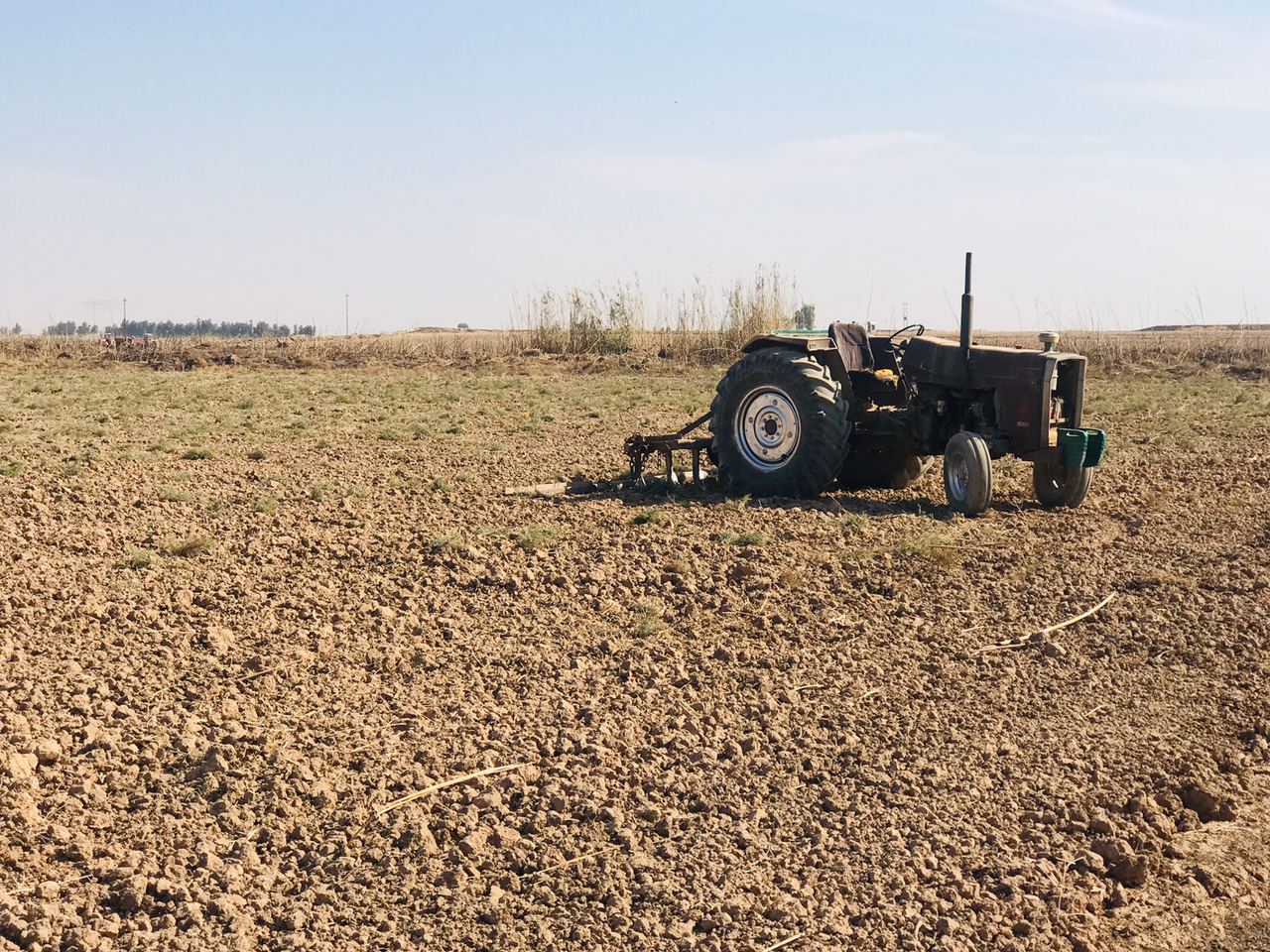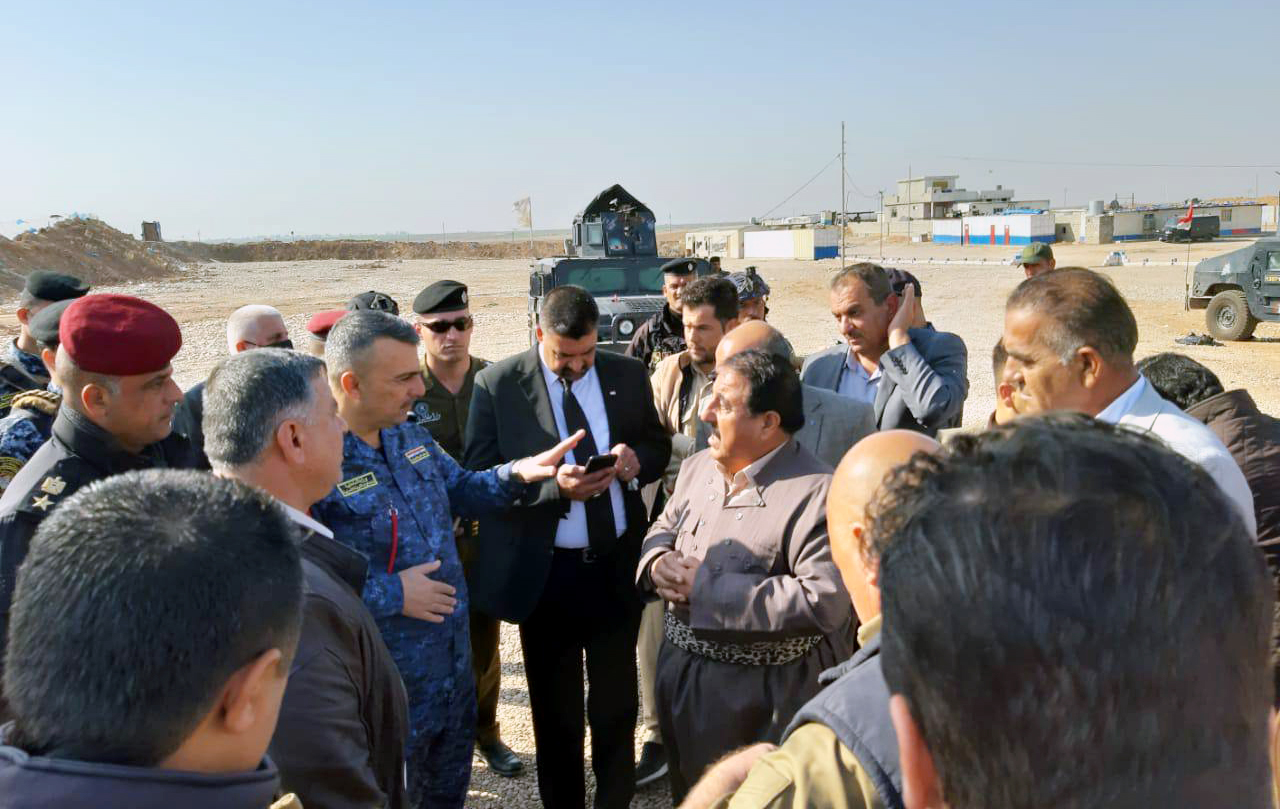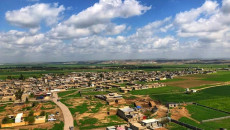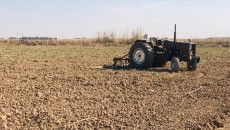Due to landownership disputes, Kurdish farmers in Kirkuk's Daquq district have been preventing a governmental committee from surveying their agricultural lands.
On 12 January 2021, Kurdish farmers in Daquq’s Haftaghar area prevented members of a committee of Kirkuk’s Agriculture Directorate from surveying their agricultural fields. The committee was accompanied by an armed force of the Federal Government.
Hasan Garmiyani, one of the Kurdish farmers in Fareeq village, told KirkukNow: “This is the second time this committee comes within one month. They want to survey the lands in the villages Fareeq, Mansour, Albunajim and Jinlawa, which is about 6,000 Dunams (about 15 square kilometres)."
Garmiyani and other Kurdish farmers in the area fear that their lands will be given to Arab farmers after the survey. “During Saddam Hussein’s Ba’th regime, those lands were taken from the Kurdish farmers and given to 16 Arab farmers from Tikrit. And now they want to take the land again using the same scheme.”
Video: Kurdish farmers say documents have been falsified
The landownership disputes in Kirkuk dates back to the era when the Ba’th regime took power. A parliamentary committee has been assigned to resolve them.
On 28 December 2020, the parliamentary committee went to Kirkuk to investigate the matter. They then issued a moratorium on the lands until after the conclusion of their report.
A member of the other committee that wants to survey the lands in Daquq said that their work is not related to the parliamentary committee, but that they are there on orders from Kirkuk’s local administration, which was issued after Arab farmers filed legal complaints.
The committee member, who wished to remain unnamed, said that a number of Arab farmers filed a legal complaint against the Kurdish farmers, claiming that they have expanded their fields illegally. “We want to do a survey and find out whether the Kurdish farmers have expanded their fields into those of the Arab farmers or not.”
“We have been trying to conduct this survey for three years, but the people from those villages won’t allow us.”
Resolving the ownership of part of those lands is tied to Article 140 (meant to determine whether Kirkuk and other areas should fall under the administration of the Federal Iraqi government or the Kurdistan Regional Government) of the Iraqi Constitution, which was supposed to be implemented by the end of 2007.
Azad Rostam, one of the villagers from the area and head of the local branch of the Patriotic Union of Kurdistan (PUK), told KirkukNow: “It was initially decided that no survey would be conducted, but they changed their minds later.”
“Unfortunately, the Iraqi army in the area have sided with the Agriculture committee and didn’t stay neutral. They have even threatened to detain the Kurdish farmers if they stood in the way.”

The dispute was exacerbated further after the Federal Government forced the Peshmerga, the armed forces of the Kurdistan Regional Government (KRG), out of the disputed areas.
Assi, a 76-year-old villager from Fareeq village, told KirkukNow: “Our ancestors were born in this village, but if this current process succeeds, it will be impossible for us to be able to live here.”
He complained about the “silence” of the KRG and wondered: “For how much longer can we resist while they raid us and try to take our lands with the help of the government?”
The origin of the landownership disputes goes back to when agricultural lands belonging to Kurds and Turkmens in Kirkuk and some other disputed areas in other provinces were leased to Arabs from central and southern provinces of Iraq under the rule of the Ba’th regime. Most of the Arabs who were settled there left after the fall of the Saddam regime in 2003.
The land confiscation and their redistribution to Arab farmers was part of the ‘Arabization process’ and was directly ordered by the regime’s ‘Revolutionary Command Council’, which had legal powers.
The Arab farmers say they have “legal documents” proving their ownership of those lands, that’s why they have returned.
The disputes over land ownership in Kirkuk’s Laylan, Daquq and several other areas have several times led to conflicts and quarrels between Arabs, Kurds and Turkmens.







